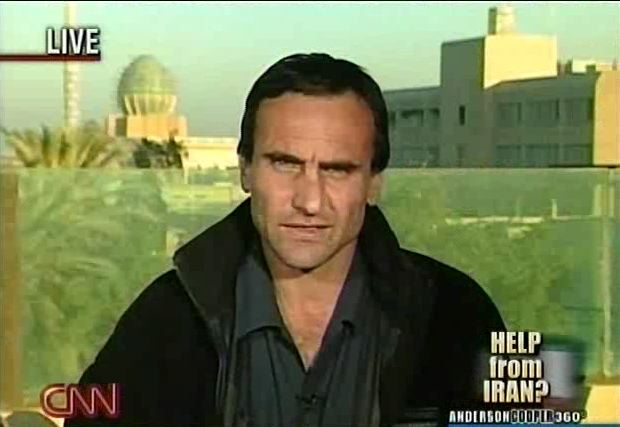AC: ...and Iran says opportunity is knocking.

Click photo to play
Length: 4:15
ANDERSON COOPER: Well, joining me to discuss today's historic meeting is Michael Ware, who joins me now from Baghdad. And also we'll be joined by Reza Aslan in a moment.
Michael, good evening to you. What so far has Iran's role been on the ground in Iraq?
MICHAEL WARE, CNN CORRESPONDENT: Good evening, Anderson.
Well, according to U.S. and British intelligence, Iran has been affecting a very complex program. It has effectively been trying to match the United States in terms of what the U.S. is doing here across diplomatic fronts, political fronts, economic fronts, intelligence and propaganda fronts, and military fronts.
What the Western intelligence community says is that hardline elements of the Iranian Revolutionary Guards, Quds Force, has been liaising with, training, arming, equipping, financing and directing many of the militias. We've also seen Iran, according to Western intelligence, play a heavy hand in creating the shape of Iraqi-Shia politics. Certainly, the United Iraqi Alliance, which took government.
Many Western intelligence agents claim that the Iranian ambassador here in Baghdad played a very key role there. So it seems clear from them that Iran is very much seeking influence. And indeed, many people would say with this current government, Tehran has more influence than Washington could ever hope to have.
COOPER: Well, Michael, certainly among Sunni insurgents, Iran is viewed as an enemy. Among Shia Iraqis, though, how do they view Iran?
WARE: Well, that is a very, very mixed bag. I mean, by and large, many people underestimate the sense of Iraqi nationalism. Being an Iraqi Shia does not mean that in any way are you pro-Iranian. Indeed, there is -- despite the cultural and religious similarities, there is also many cultural and other divides. And don't forget these two nations fought a long and bitter war. A lot of the residue from that remains.
Nonetheless, Iran has been able to extend its sphere of influence here. I mean, Saddam used to check Iranian influence. It stopped at his border. Well, we've now seen Iranian influence take southern Iraq. And then after the last election, we saw Iranian influence take the central government as well. So there has definitely been an expansion.
COOPER: We are joined also now here in Istanbul with Reza Aslan.
Iran's influence in Iraq, it really has never been higher?
ASLAN: No, it hasn't. And look, I think the Iranians recognize -- they're following the debate going on in the United States. They know that there is a momentum here that is coming to the consensus that there is no way of winning Iraq without Iran's help. And I think in many ways they are trying to co-opt that and get the upper hand.
COOPER: By having their own meetings right now with Iraq's president?
ASLAN: Precisely. Look, Iran -- there's -- Iran is going to be a part of the future of Iraq. There's no way around it--
COOPER: Whether we like it or not.
ASLAN: That's right. And at a certain point I think that this administration is going to have to recognize that we are going to have to deal with Iran as the regional power that it is. It's no longer that rogue state that it used to be in the '90s and in the '80s. And the sooner, I think, we come to terms with that, the sooner we'll be able to deal with Iran in a way that will bring some kind of stability into that region.
COOPER: It is amazing, though, that they have been able to overcome this enmity which existed between the two nations, though.
ASLAN: That's right. I mean, I think in many ways it shows an incredible degree of sophistication on the part of the diplomats in Iran. But more importantly, look, there's -- these guys are neighbors. They share, I think, you know, a religion, they share certain ideologies, they share certain regional interests. And more importantly, they have a very robust trade going on between these two countries. So, I think Iran wants to make sure that whatever happens in Iraq in the coming years that its interests are going to be preserved.
COOPER: Reza, thanks very much.
And Michael Ware also, in Baghdad. Michael, thanks.
